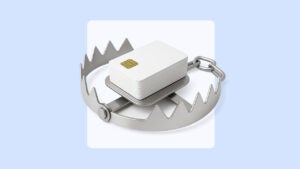Credit card delinquencies take a nosedive during pandemic, according to report

The economic impact of the pandemic cannot be overstated, yet some positive news regarding credit card delinquency rates could be cause for celebration. A recent report from Experian showed that, from January 2020 to June 2020, the average instances of consumer credit card delinquency decreased by 3.9 percent.
Interestingly, when it comes to all types of credit, some states seem to be making more progress in decreasing delinquency rates than others. As the Experian data shows, Pennsylvania saw a decrease of 11.7 percent in 30-day delinquencies, while California saw a drop of 8.2 percent and Florida saw a decrease of 10.9 percent. New York, on the other hand, only saw 30-day delinquency rates drop by 1.8 percent over the same six-month period.
Either way, any drop can be seen as a miracle of sorts. This is all at a time of record unemployment and massive pay cuts in many industries, which could leave you wondering where the improvement stems from.
However, Experian points out that some of the positive movement is likely due to lender accommodations provided through the Coronavirus Aid, Relief and Economic Security (CARES) Act. “With more consumers in forbearance, or with payments deferred through some accommodation, the decline in new delinquencies is understandable, as repayment for many loans has been paused,” they write.
Can’t pay a credit card bill? Consider these tips
If you may be unable to keep up with your credit card bills due to financial hardship or any other reason, there are some steps you can take now to lessen the impact. Before you default on your credit card payments and other bills, consider these tips:
Check your credit card issuer’s COVID-19 assistance page
Most credit card issuers have resource pages with information on assistance programs. This includes American Express, Chase, Wells Fargo and others, so make sure to check with your provider to find out if any forbearance options are available to you.
Call your credit card issuer
Call your credit issuer to see if it can move your due date or provide other assistance that can help you stay on track.
Scrape together the cash to make a minimum payment
If you can scrape together enough cash to make only the minimum payments on your debts, you can avoid damage to your credit score and buy some time to get your finances back on track.
Consider debt consolidation
If your debts are at high rates but your credit score is in good shape for now, then you may want to look into better borrowing options. Consider whether you could benefit from consolidating high interest debt with a balance transfer credit card or a personal loan.
Why we ask for feedback Your feedback helps us improve our content and services. It takes less than a minute to complete.
Your responses are anonymous and will only be used for improving our website.





